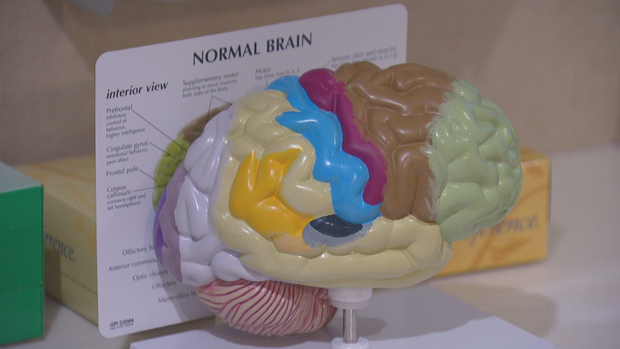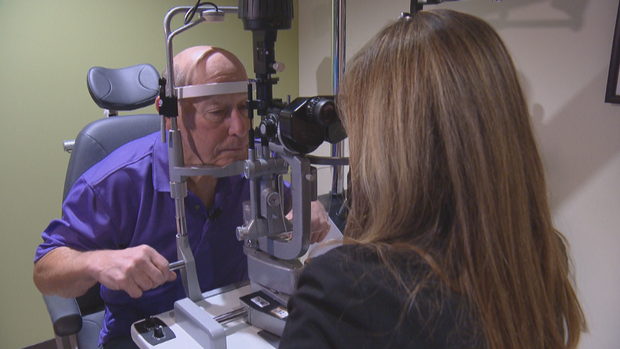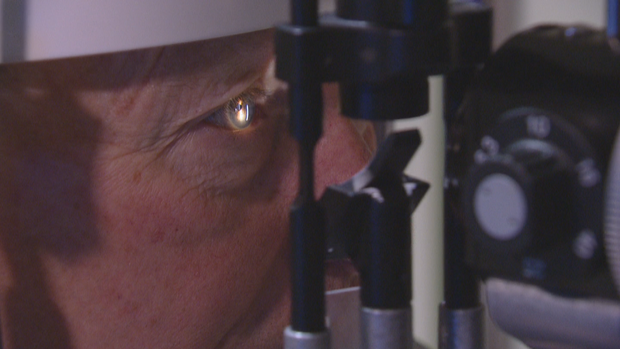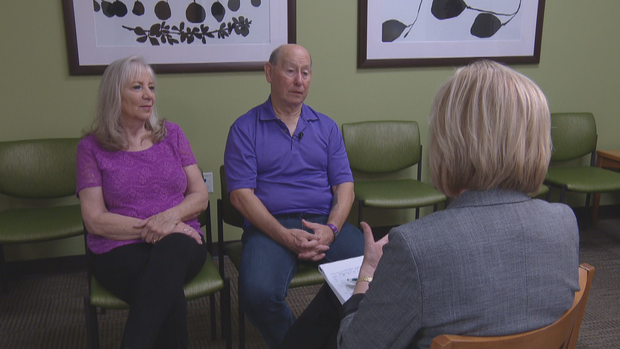Rare Form Of Alzheimer's Affects What The Eyes See
By Kathy Walsh
DENVER (CBS4) - There is a rare form of Alzheimer's disease that doesn't start out as memory loss. Instead, patients lose the ability to interpret what they're looking at. They can no longer trust their vision.
It is called Posterior Cortical Atrophy (PCA). The part of the brain that processes visual information is degenerating.
Patients can have difficulty driving within the lane. They can get lost, even indoors, or have trouble recognizing who or what they are seeing.
"Reading's very difficult for me," said Bob Yetz. "Sometimes the letters just kind of meld in together."
The 71-year-old can see. Bob's eyes are healthy.
"Your retina and your optic nerve all look to be in good shape," said Dr. Victoria Pelak, neuro-ophthalmologist.
But Bob's brain is not. Bob has PCA. At UCHealth Sue Anschutz-Rodgers Eye Center, Pelak explained, with PCA, the back of the brain is affected.
"Just like Alzheimer's affects memory areas, that part of the brain that is important for vision is degenerating because of Alzheimer's disease," said Pelak.
Bob has difficulty interpreting what he is seeing. He struggles with judging distance and may walk into door frames. He has trouble finding things, even though they are right in front of him. He has to be careful walking.
On a recent trip to Italy, Bob took a tumble.
"Unfortunately, Bob didn't see a dome of light that was in the sidewalk and he fell flat," explained Barbara Hubbard, Bob's friend and now, his care partner.
"You get frustrated obviously," said Bob.
Bob depends on Barbara.
"You can see how independence can drop quickly, early," said Pelak.
"I just deal with it. I try to deal with it as best I can," said Bob.
There is no cure for Alzheimer's or PCA, but Bob Yetz remains positive. He is happy to share his struggle with PCA so others know they are not alone.
Bob and Barbara participate in a PCA support group for people with the diagnosis. For more information about PCA in Colorado, contact Jerri Lusk at jerri.lusk@ucdenver.edu or visit the website coloradopcasupport.org.
Pelak focuses her research on changes in visual processing that accompany some forms of Alzheimer's disease, such as Posterior Cortical Atrophy, at the Rocky Mountain Alzheimer's Disease Center at CU Anschutz.
Kathy Walsh is CBS4's Weekend Anchor and Health Specialist. She has been with CBS4 since 1984. She is always open to story ideas. Follow Kathy on Twitter @WalshCBS4.








